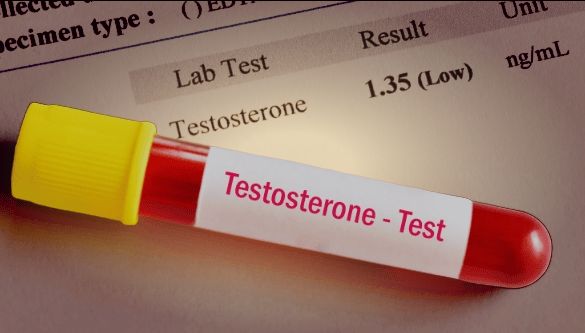Low testosterone levels can produce various difficulties in men. Recognizing the signs and taking necessary steps is crucial for maintaining a healthy overall and sexual life.
The American Urological Association reports that about 2 in every 100 men have testosterone or testosterone deficiency. This is an alarming situation for the entire world, including both men and women.
We all understand the importance of adequate testosterone amount in the human body. A decrease in testosterone in men directly impacts one’s overall life and even one’s offspring. Low testosterone levels can cause low libido, weakness of bones, mental weakness, and much more.
Understanding the causes and signs of testosterone deficiency and ways to improve it is crucial to maintain a healthy life.
Normal testosterone level
According to a report by Mount Sinai, a normal testosterone level in males ranges from 300 to 1,000 ng/dL or 10 to 35 nmol/L.
In females, normal testosterone amount range from 15 to 70 ng/dL or 0.5 to 2.4nmol/L.
It is important to note that the female body produces significantly less testosterone than the male body. Additionally, fluctuations in testosterone levels throughout the year are common.
Less than 300 ng/dL is considered testosterone deficiency in men.
Complications of low testosterone levels
Low testosterone level can cause several complications in men. It can lead to different kinds of physical and psychological health conditions. Testosterone deficiency often leads to diabetes and anemia-like health conditions as well.

Several signs and symptoms characterize the complications of this sexual hormone deficiency.
Signs of Low testosterone levels
Low Libido
Decreased sexual desire or low libido is the prime sign of deficiency of testosterone in men. This mental situation often leads to chaos in a romantic relationship.
Erectile Dysfunction
Erectile dysfunction (ED) is often linked to low testosterone levels in men. It is a condition where a man’s penis cannot achieve or maintain an erection.
Reduced Muscle Mass and Strength
Testosterone is vital for the development and upkeep of muscles, and insufficient levels can result in bone fragility.
Increased Body Fat
People with low testosterone can also experience increased body fat. This sometimes also causes enlarged breast tissue, also known as gynecomastia.
Cardiovascular Issues
A decrease in testosterone levels in the body can cause certain types of cardiovascular conditions. It may result in a heart attack or stroke.
Mental Health Conditions
Depression, cognitive decline, and depression are some psychological conditions that can occur due to testosterone deficiency. They may also report short-term memory loss and difficulty concentrating.
Physical Health Conditions
In addition to body weight gain, low testosterone levels can produce diabetes and anemia-like health conditions.
Ways to improve testosterone levels in the body
Testosterone deficiency is not a lifelong condition. It can be managed with some basic exercises and changes in lifestyle and meals.

Exercise Regularly
Engaging in regular physical exercises, especially weight lifting and HIIT (high-intensity interval training), can quickly boost testosterone levels.
Eat a Balanced Diet
Eating a nutrient-rich, balanced diet can help individuals with low sexual hormones. Your food must contain foods that are rich in healthy fats, proteins, and carbohydrates. Foods like lean meats, nuts, eggs, fish, seeds and leafy greens are the best.
Get Enough Sleep
However sleep difficulty is a sign of low testosterone levels, it can be managed by taking a good night’s sleep. During daytime testosterone quantity can drop up to 15 per cent when you get only five hours of sleep. Taking 7 to 9 hours of quality sleep is good.
Reduce Stress
Stress and testosterone deficiency are both connected. Long-term stress leads to elevated levels of cortisol, a tension hormone, that negatively impacts testosterone production. You should follow practices like deep breathing, exercise and Yoga to manage testosterone levels.
Say No to Alcohol
Consuming too much alcohol can also impact the testosterone amount in the body. You should completely avoid or at least moderate alcohol consumption.
Take Vitamin and Minerals
Consuming certain vitamins and minerals can improve testosterone levels. Vitamin D and Zinc play crucial roles in hormone production.
Treatments of Low Testosterone
- Testosterone Replacement Therapy (TRT): This is a common treatment for low testosterone amount, although it has potential risks and side effects that need to be monitored by a healthcare provider.
- Medication: In certain cases, different medications might be recommended to address specific symptoms or underlying conditions.
If you’re dealing with symptoms of low testosterone, it’s important to have a chat with healthcare professionals for a thorough diagnosis and the right treatment.
Also read: Adderall and ADHD: Things You Must Know Before Treatment











